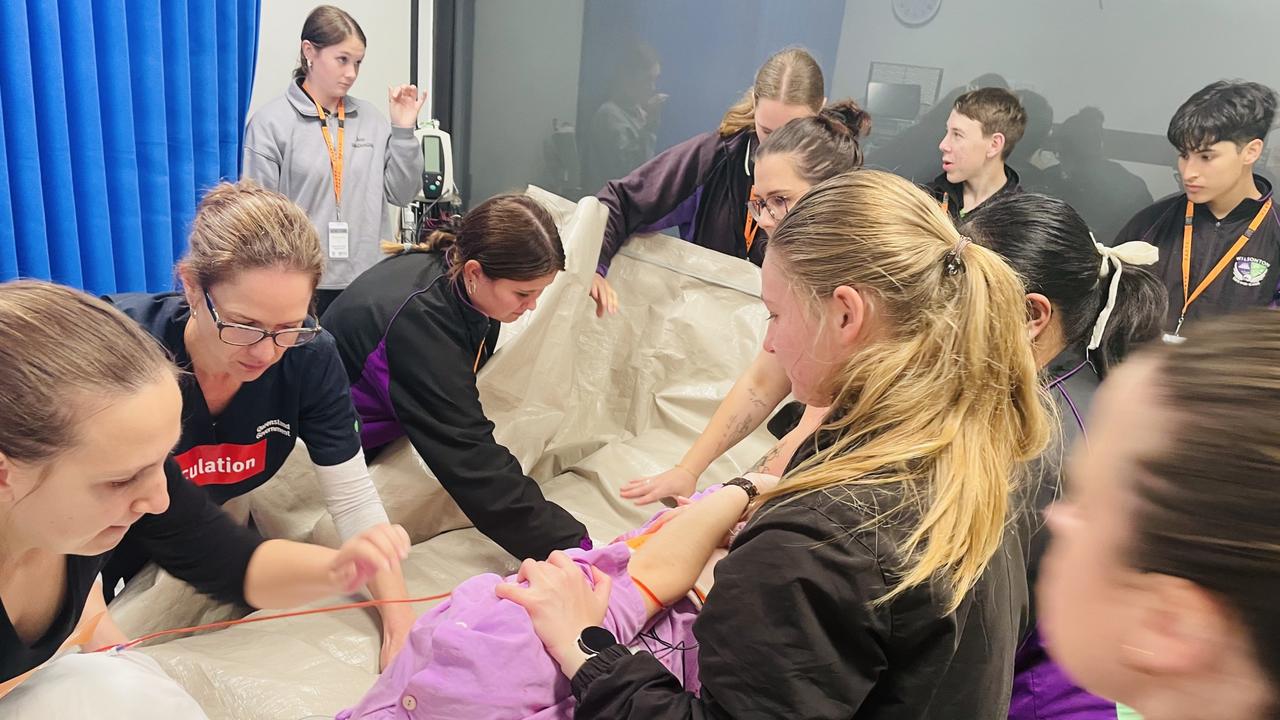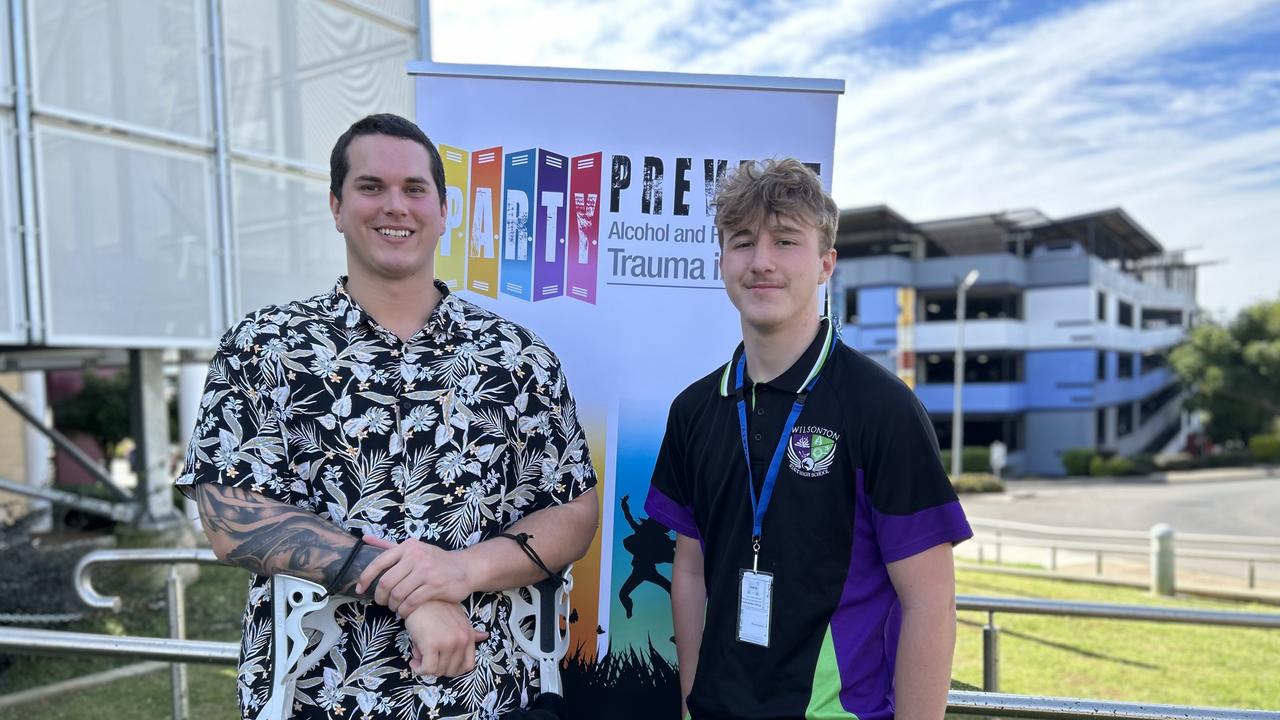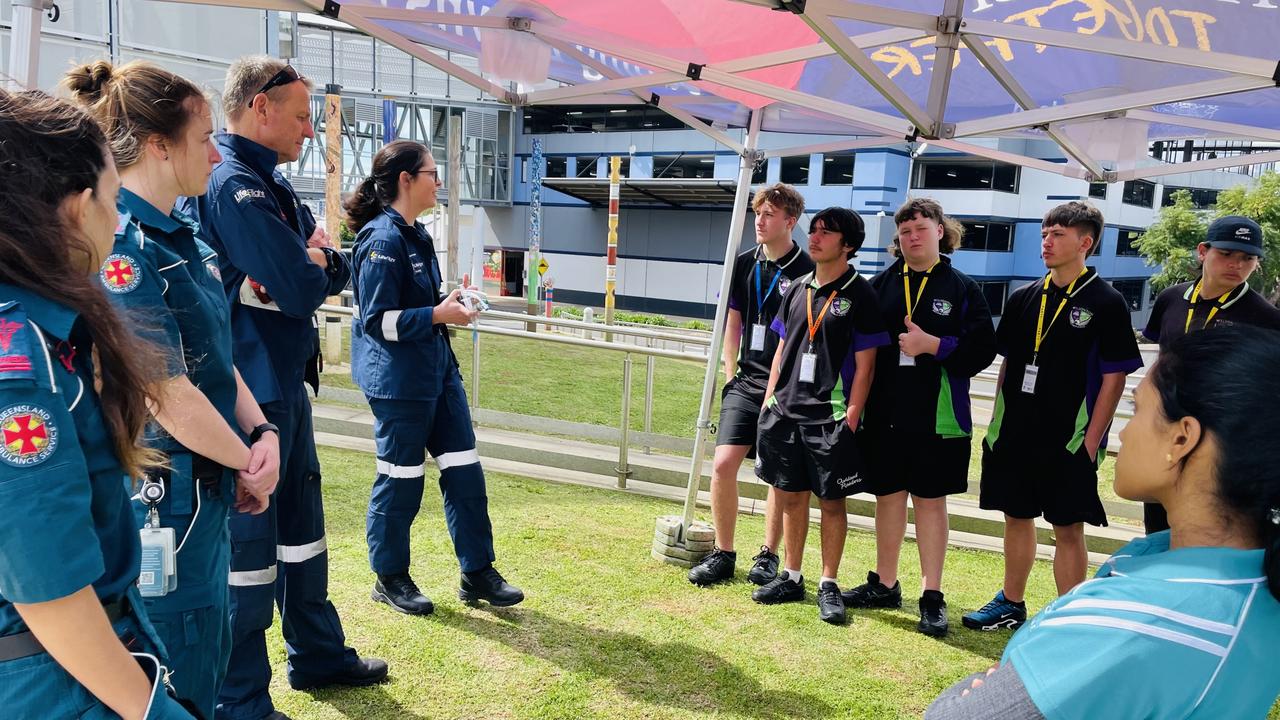Wilsonton State High students experience frontline emergency response
A real-life look at how choices land people in the ED and sometimes, the morgue has been given to a group of high school kids in an effort to save them from ending up in both.

Each fortnight during school term, doctors, clinicians, nurses and morticians at Toowoomba Hospital show a group of high school students a day in the life of the emergency department.
The behind-the-scenes look is part of a prevention program for alcohol and risk-related injuries in youth (PARTY), and this week a group of Wilsonton State High School students aged 15-16 are getting first-hand experience in the consequences of risky behaviour, from transport accidents, falls, and assaults which are often drug and/or alcohol-fuelled.
“I lost my right leg six years ago when I crashed a motorcycle the day I was getting tested for my open licence,” crash survivor Zach Nightingale said.
Surviving the crash came at a cost, as 97 per cent of his right hip exploded on impact with his life only saved because a stranger pinched down a severed artery as they waited for care.

Mr Nightingale was flown by rescue helicopter to Brisbane and surgeons were unable to reattach his leg.
Critical care doctor Sarah Ayles also shared her experiences of seeing violent physical injury with the high school students.
As a doctor working in the LifeFlight helicopters across Queensland and the Darling Downs she sees trauma-related incidents almost every single day.
“Too many of these missions are for young people who have experienced traumatic physical injuries often as a result of poor choices which will impact them for the remainder of their lives,” she said.
The students also heard from paramedics and 10 different hospital departments.
“Every year in Australia 75,000 young people aged 15-24 end up in hospital because of trauma,” Toowoomba’s emergency acting nurse unit manager Dani Williams said.

As the Darling Downs program manager for Prevent Alcohol and Risk-related Trauma in Youth, she said it was important to have conversations with young people over trauma related injuries and death.
“Trauma doesn’t just happen,” Ms Williams said.
“Trauma happens because of the choices people make.
“We aren’t standing in front of them making their decisions for them.
“We challenge the students with situations to identify high risk situations and then we challenge the students about their decision-making process.”








